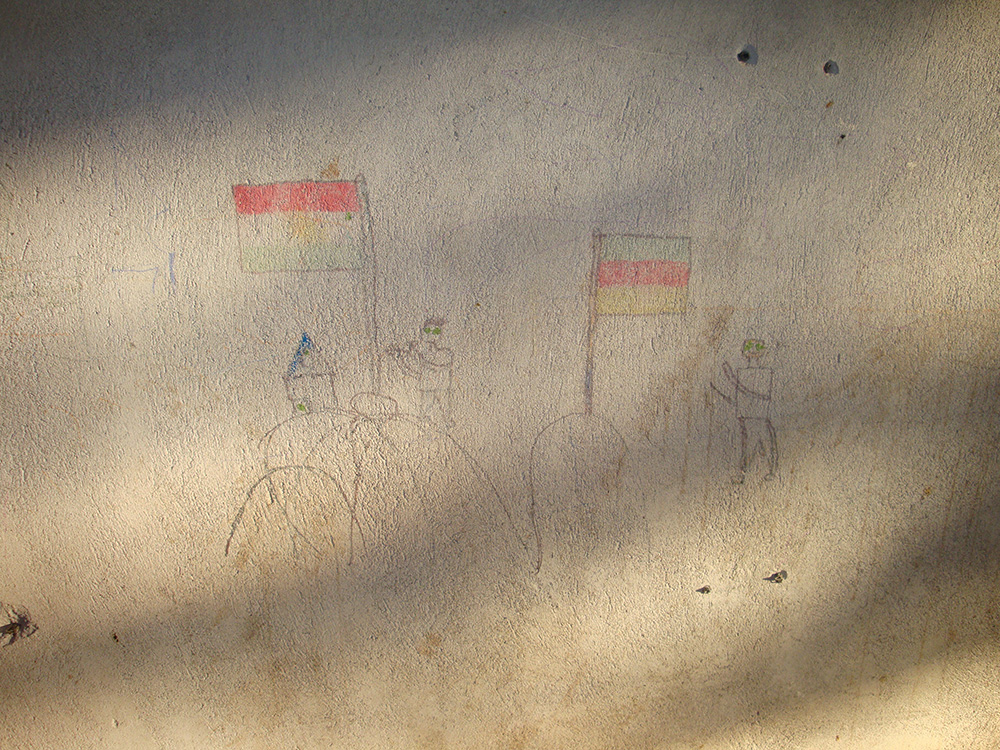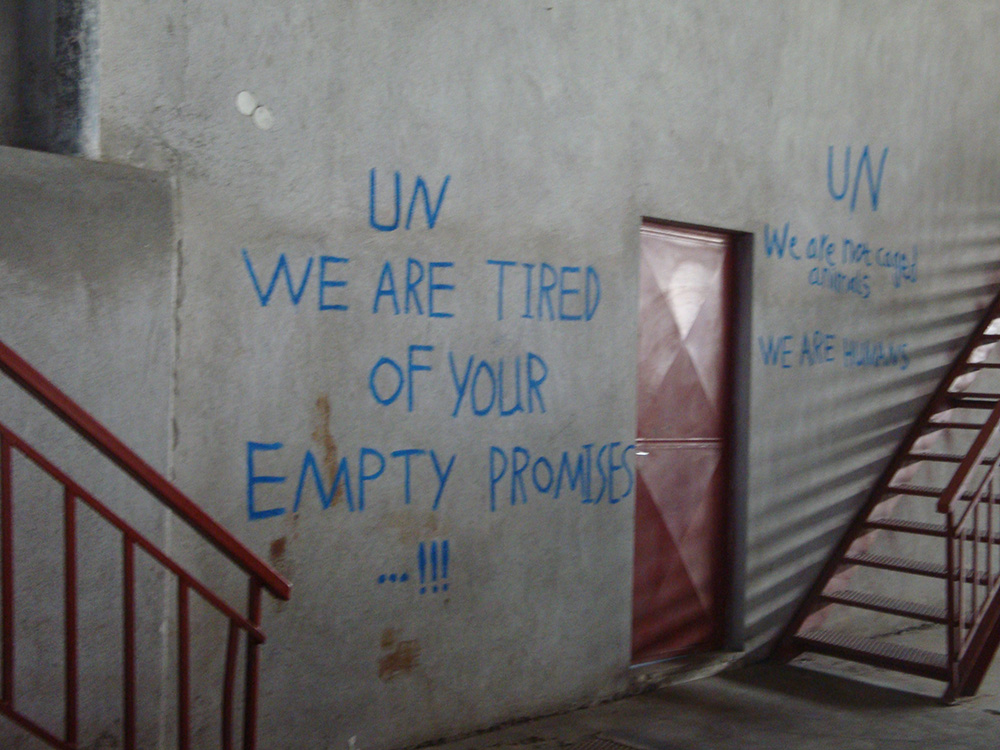I stepped out on a bright crisp November morning to good smells and the familiar scene of people perched on stools breakfasting on cigarettes and coffee. Greeks don’t seem to be able to live without coffee and most commuters have an espresso or an iced coffee or a latte in their hands – even some of the lads riding scooters have cups balanced on the handlebars. I love coffee but not with a passion to match Greek obsession
My last day of work with the refugees was yesterday and lots of my colleagues have asked me how I have found the experience. It is a hard question to answer. My mind is still over-full with stories and faces and wounds, both visible and internal.
When we arrived at Oreokastro camp, on my last day, the atmosphere was even more tense than usual. It was obvious that something had happened. Several of the young Palestinian men whom I know to be late risers were outside the camp gates smoking. They said they’d been up since the small hours. There was a lot of talk – between our interpreters and the refugees. A pile of bedding and clothing was strewn outside the factory building. Some of it was charred.
The weather is getting cold. People use stoves to cook and keep warm. A tent had caught light during the night. Perhaps it was a cigarette that had started the fire. All of the fire extinguishers were empty.
Now two children were in hospital and one was thought to have been seriously ill. Their mother was also badly burned.
I went find her. There was now just a space where the tent had been. People know me by now and when a mother and daughter noticed I looked lost, we did a mime and the little girl – I guess she was about six – took my hand and led me to another tent, a tent inhabited by a refugee who was well known to me and was living alone. The lone man had disabling anxiety; he’d fled Syria with his brother, but the brother had drowned in a boat during the exodus. He’d been a bit better lately, partly perhaps because I’d allowed him a few sleeping pills. I felt proud of him for taking the woman in. I could see that he was being a tremendous support to her, despite the fact that a lot of other women had also apparently settled in to help too.
My patient wasn’t in good shape. Our psychologist and interpreter were already in the tent and told me that the mother was in pain. She was huddled up under a pile of blankets weeping. Her burns had been dressed in the hospital and as is their usual practice they’d sent her out, not with any medicines or pain relief but with a short note with instructions to arrange tetanus immunisation and antibiotic cover. I’d arrived armed with the tetanus, antibiotics and pain-killers. Both her hands were badly burned and blistered. She’d also lost quite a lot of hair. I had to bully her to take a few bites of bread and tea before she could take the pain killers and I felt awful inflicting more pain as I administered the tetanus injection. There was no news of the children although her husband was there at the hospital with them, so at least she wasn’t going through this new trauma alone. Seeing her distress, I added a calmer-downer to her medicines and tried to send the assembled company away so she could sleep a little.
She emerged in the afternoon having managed to sleep for a couple of hours and by then I’d heard that one of the victims of the fire was in intensive care, intubated. Someone thought that 30% of her body had been burned. If she doesn’t survive – and it will be touch and go – this will be the third death in this camp of about 1000 during the two months I have worked there.
One colleague, who had worked in ‘The Jungle’ in Calais with Médecins due Monde, mentioned that deaths and serious injuries were also common there. Refugees risk a lot in their attempts to reach Britain – many are killed on the roads, fall off vehicles, fall from fences. And there is some violence between refugees on occasion. The death rate is high.
The rest of the day’s work at the clinic in Oreokastro was fairly straightforward. I had to do some intradermal inoculations of four unaccompanied minors (teenage boys) who were heading off to Holland, checking whether they had TB. I saw lots of people with sore throats and chest infections, and then our psychologist asked me to see another patient in her tent. The ‘old’ woman had only arrived in the camp three days before. She was my age but so haggard – like many refugees she looked twenty years older than her chronological age. She'd been trafficked some of the way from Damascus but then had been abandoned in a forest somewhere. She hadn’t eaten for days. Then someone found her on the road and she was brought to the camp.
She said that IS had shot the rest of her family – her husband and four children – about a month before. She was a shadow of a person, sitting on a makeshift bed, in a pile of blankets, shrouded in her hijab, weeping. She seemed slightly comforted when we assured her she was in a safe place and we’d do what we could to help her, but sitting there on the concrete floor I wondered what I could do for this poor shattered woman beyond some sedatives to numb the pain for a little while.
So what words sum up my experience over these last months?
Sadness, impotence, disappointment that there seems such little political will anywhere in Europe to settle the refugees and a hope that I have offered a chink of comfort to help these people gather themselves and start to rebuild their lives.
Meanwhile, let’s just pray that the bombing will stop soon.
 |
| Drawing depicting the Kurdish flag, in Oreokastro refugee camp |
 |
| Emotions and frustrations in the camps run high; the refugees want to move on |